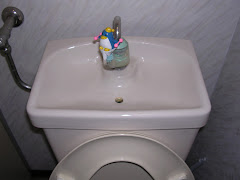Martial artist Bruce Lee said, "Observe everything, take what you can use."
All my adult life, I try to do that. I read books trying to find things that can help me in my career and in my life in general.
My wife works in a library. She came home one day and showed me a very small book. The book is Never Confuse a Memo with Reality (And Other Business Lessons Too Simple Not to Know) by Richard A. Moran; ISBN 0-88730-669-1.
Of all the self-improvement books I have read, this book inspired and helped me the most. It is full of wisdom; it communicated the wisdom succinctly. I pondered over writing my thoughts on what the author communicated, but decided against doing so. I contemplated about explaining them to my children, but decided against doing so. The reason: Whatever I try to do will just spoil the wisdom. What I decide to do is to copy down the ones that inspired me the most and put them in a place that is most available to me, so that I have access to them wherever I go.
Every bullet below is verbatim from the book.
Complaint
• If you're going to complain about something, have a solution in mind and make clear what you want.
• Never take a problem to your boss without some solutions. You are getting paid to think, not to whine.
• Never complain about jet lag.
Communication
• Learn how to give first-rate presentations so that the message you're trying to deliver is the same one the audience receives.
• Share the credit for successful projects and make sure everyone's supervisor knows of everyone's contribution.
• Brag about someone to another person; that someone is bound to find out.
• Learn how to run a meeting well, and learn how to prepare a good meeting agenda.
• When giving a talk or a presentation, always consider what thought you want the audience to walk away with.
• Create a great opening to speeches and presentations-use it often or until you get sick of it.
• A little self-effacing humor can be an effective icebreaker; just don't use too much.
• Whatever initiatives you are communicating, remember to tell your audience three things: What it is and why, how it will affect them, and when they will know more.
• Send thank-you notes to people who help you.
• Never try to accomplish more than three things in any one meeting.
• Ask questions at company meetings, but don't embarrass anyone.
Mind Set
• Worry more about implementation than strategy-it's harder to do.
• Develop a high tolerance for ambiguity-you'll be more satisfied.
• Never miss deadlines. Ever.
• Never in your life say, "It's not my job."
• Read your job description but never be restricted by it. Do what needs to be done.
• Learn what finished work looks like and then deliver your own work only when it looks the same way.
• Learn how to involve people in your work.
• Be honest with yourself about your strengths and weakness and manage accordingly.
• Being in the right place at the right time is never an accident.
• Never underestimate the ability of people to develop strange interpretations of anything you write, say, or do.
• Don't make people feel bad when they make a mistake.
Management
• Don't micromanage your people, your projects, or your own life.
• Make decisions in a timely fashion, even if you're not 100% certain that it's the right decision. Not deciding is a decision, too.
Priorities
• Focus on the most important things to do to help your department or organization to be successful. Don't focus on the easiest things.
Personal Protection
• Be prepared for performance reviews-do your own review in advance and give it to your boss.
• Always have an answer to the question. What would I do if I lost my job tomorrow?
Subscribe to:
Post Comments (Atom)











2 comments:
All I Really Need To Know I Learned In Kindergarten was written by Robert Fulghum, FYI.
Jet lag is my favorite thing to complain about. I must move on.
Post a Comment